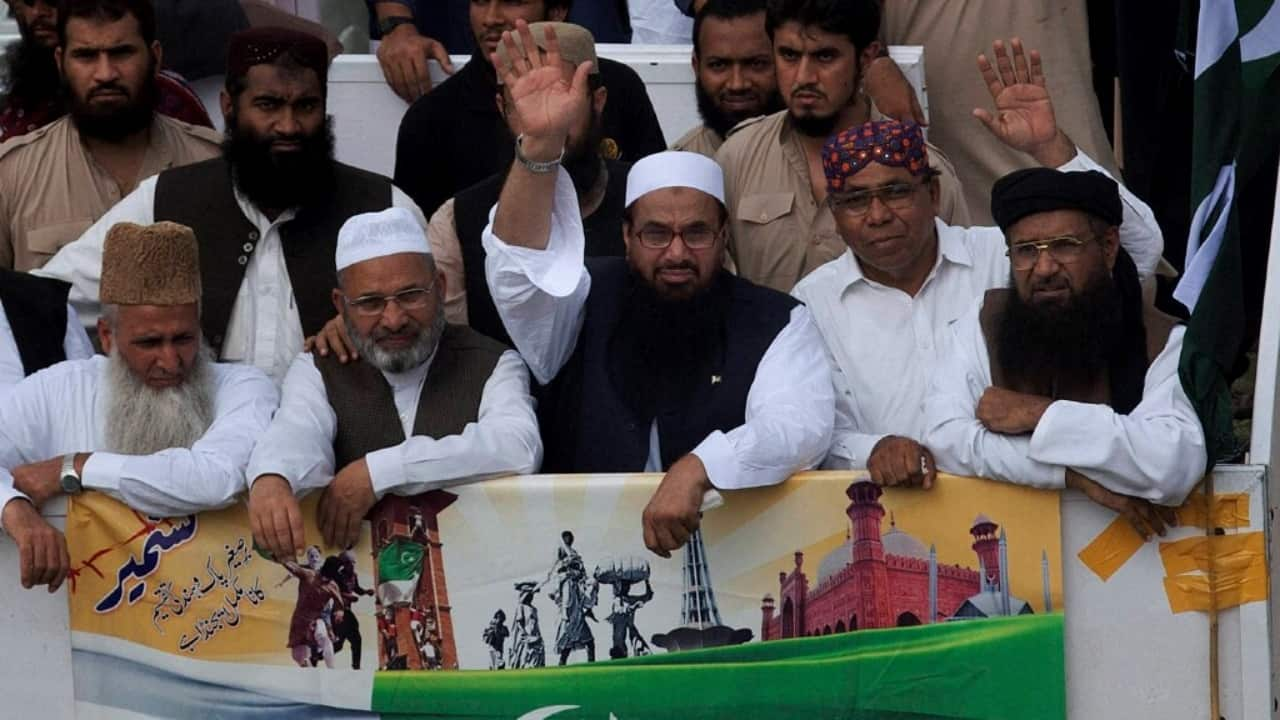
Pahalgam attack fallout: How India is pushing to choke Pakistan’s terror finances
Published on 02/05/2025 03:12 PM
After downgrading its diplomatic ties with Pakistan in wake of the terror attack in Jammu and Kashmir’s Pahalgam, India is now recalibrating its strategy to tighten the noose around Pakistan’s terror infrastructure. At the heart of this approach is targeting Islamabad’s lifeline — foreign funding.
The first of New Delhi’s two-pronged approach is to push Islamabad back into the ‘grey list’ of Financial Action Task Force (FATF), the global terror financing watchdog, according to a report by The Indian Express. Pakistan was put in the ‘grey list’ in June 2018 and removed in October 2022 after facing increased monitoring.
In the second approach, New Delhi is preparing to raise formal objections to the International Monetary Fund (IMF) over continued disbursement of $7-billion financial aid to Pakistan, which started last year. India has contended that Pakistan continues to use such financial aid to sponsor and protect terror outfits operating with impunity from its soil.
Back to the ‘Grey List’? India Thinks So
Pakistan’s removal from the FATF ‘grey list’ in 2022 was seen by many as politically driven, who questioned the credibility of Pakistan’s supposed crackdown on terror financing.
Since then, the facts have only reinforced India’s position: terror proxies like, Lashkar-e-Taiba, Jaish-e-Mohammed (JeM), and Hizbul Mujahideen continue to operate freely, recruit, fundraise, and execute attacks from Pakistani soil, often with logistical and ideological backing from the ISI.
India’s case to the FATF will focus on:
· Rebranding of banned terror outfits under new names (like TRF)
· Non-prosecution of UN-designated terrorists like Hafiz Saeed and Masood Azhar
· Ongoing terror financing through shell NGOs and Islamic charities
· Lack of long-term asset seizures or financial disruption to known networks
The challenge to garner support
To bring Pakistan back in the ‘grey list’, India would require the suppose of other FATF member countries to start a nomination process.
“There has been a discussion on the steps that could be taken on the financial front. Demanding a ‘grey list’ for Pakistan at the FATF is on the table. But there is a nomination process in FATF and members can ask for taking up the matter, that can be approved by the Plenary,” said an official, as quoted by The Indian Express.
The FATF comprises 40 member countries, and over 200 jurisdictions have pledged adherence to its recommendations through FATF-style regional bodies. For India, the challenge lies in garnering sufficient backing from member nations to push such a move. Encouragingly, a measure of international support is evident—New Delhi received condolence messages from at least 23 FATF members following the Pahalgam attack, including major players like the US, UK, France, Germany, Australia, the European Commission, and influential Gulf states such as Saudi Arabia and the UAE.
Pakistan is not a member of the FATF itself but belongs to the Asia Pacific Group on Money Laundering (APG)—the largest of the FATF-style regional bodies. India, on the other hand, holds membership in both the APG and the FATF, giving it a stronger platform to influence proceedings and advocate for action.
Targeting IMF Lifeline
In parallel with its FATF campaign, India is also preparing to lodge a formal protest with the International Monetary Fund (IMF) and its key donor nations over the ongoing bailout packages to Pakistan, which are currently being used to prop up the country’s economy amid spiraling inflation, fiscal mismanagement, and growing political unrest.
In July 2024, Pakistan secured a three-year, $7 billion financial assistance package from the International Monetary Fund (IMF) under its Extended Fund Facility (EFF). Spanning 37 months, the programme includes six performance reviews, with each tied to the phased release of funds. The next installment—around $1 billion—will only be disbursed if Pakistan successfully meets the targets set in the upcoming review.
Pakistan’s economy is on the brink. Inflation is over 30%, foreign reserves are dangerously low, and public debt is unsustainable. A renewed FATF grey listing would further dry up foreign investments and push up borrowing costs. Any interruption in IMF support or added conditionality could trigger a new economic crisis in a country already battling internal political fragmentation.
Discover the latest Business News, Budget 2025 News, Sensex, and Nifty updates. Obtain Personal Finance insights, tax queries, and expert opinions on Moneycontrol or download the Moneycontrol App to stay updated!
${res.must_watch_article[0].headline}
Stock Market Holiday Jammu Kashmir News Live Tim Cook Delhi Rain PM Modi on Shashi Tharoor Odisha 10th Result 2025 Ganga Expressway Indian Rupee Hyderabad Water Crisis IPL Points Table 2025
Business Markets Stocks India News City News Economy Mutual Funds Personal Finance IPO News Startups
Home Currencies Commodities Pre-Market IPO Global Market Bonds
Home Loans up to 50 Lakhs Credit Cards Lifetime Free Finance TrackerNew Fixed Deposits Fixed Deposit Comparison Fixed Income
Home MC 30 Top Ranked Funds ETFs Mutual Fund Screener
Income Tax Calculator EMI Calculator Retirement Planning Gratuity Calculator
Stock Markets
News18 Firstpost CNBC TV18 News18 Hindi Cricketnext Overdrive Topper Learning
About Us Contact Us Advisory Alert Advertise with Us SupportDisclaimer Privacy Policy Cookie Policy Terms & Conditions Financial Terms (Glossary) Sitemap Investors
You are already a Moneycontrol Pro user.